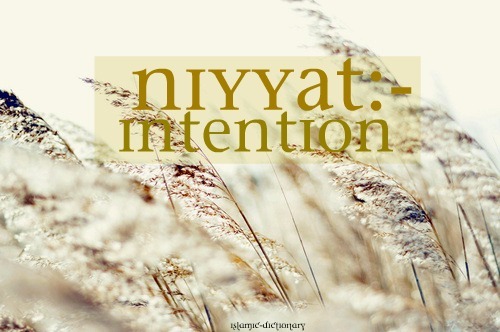1. Dan sesungguhnya hari kiamat itu pastilah datang, tak ada keraguan padanya … (QS Al Hajj: 7)
2. As Sa’ah (Hari Akhir) tidak akan terjadi hingga gempa bumi akan sangat sering terjadi (HR Bukhari)
3. Kekayaan beredar hanya di antara orang-orang kaya, tanpa manfaat bagi orang-orang miskin. (HR Tirmidzi)
4. Hari Kiamat (As Sa’ah) akan datang ketika perzinaan tersebar luas (Al-Haythami, Kitab al-Fitan)
5. Hari Akhir tidak akan datang hingga mereka (orang-orang jahat) melakukan perzinaan di jalan-jalan (jalan-jalan umum). (Ibn Hibban and Bazzar)
6. Pria akan meniru perilaku wanita; dan wanita akan meniru perilaku pria. (Allama Jalaluddin Suyuti, Durre-Mansoor)
7. Orang-orang akan menyenangi perbuatan homoseksual dan lesbianisme. (Al-Muttaqi al-Hindi, Muntakhab Kanzul Ummaal)
8. Hubungan seksual tidak sah secara terbuka akan marak. (HR Bukhari)
9. Hari Akhir itu tidak akan datang hingga angka pembunuhan meningkat. (HR Bukhari)
10. Menjelang datangnya Hari Akhir akan ada hari-hari ketika pengetahuan (agama) akan dicabut (lenyap) dan kejahiliyahan secara umum akan meluas…. (HR Bukhari)
11. Akan ada suatu ujian kegelapan kecil yang akan menimpa setiap orang di suatu masyarakat, dan kemudian ketika orang menganggap ujian itu telah berakhir, ujian itu akan terjadi terus-menerus. Selama itu seorang manusia bisa jadi adalah seorang mukmin di pagi hari dan menjadi seorang kafir di sore hari. (HR Abu Daud).
12. Akan datang suatu waktu pada umat ketika orang akan membaca Al Qur’an, tetapi tidak akan lebih jauh dari tenggorokan (tidak masuk ke dalam hati mereka) (HR Bukhari)
13. Sebelum Hari Akhir akan ada kekisruhan seperti potongan malam yang gelap, ketika seorang manusia akan menjadi seorang beriman di pagi hari dan seorang kafir di sore hari, atau seorang beriman di sore hari dan kafir di pagi hari (HR Abu Daud)
14. Suatu waktu akan datang, ketika seorang manusia tidak akan peduli bagaimana mereka mendapatkan sesuatu, halal atau haram. (HR Bukhari)
15. Akan muncul pada hari akhir seseorang yang akan memperoleh keuntungan dunia dengan menjual agama. (HR Tirmidzi)
16. Hari Akhir tidak akan datang hingga tersisa orang-orang yang tidak mengetahui kebajikan dan tidak pernah mencegah kejahatan (HR Ahmad)
17. Hari Akhir tidak akan datang sebelum Allah mengambil agama-Nya dari manusia di bumi, tidak meninggalkan seorang pun di atas bumi ini selain orang-orang kafir yang tidak mengenal perbuatan yang benar atau menolak perbuatan yang salah. (Diriwayatkan oleh Abdullah ibn ‘Amr bin ‘Ash)
18. Hari akhir tidak akan datang sebelum datangnya tiga puluh Dajjal, masing-masing mengaku dirinya sebagai seorang utusan Allah. (HR Abu Daud)
19. Tidak ada seorang pun dari Ahli Kitab, kecuali akan beriman kepadanya (‘Isa) sebelum kematiannya. Dan di hari kiamat nanti ‘Isa itu akan menjadi saksi terhadap mereka. (QS An Nisaa’: 159)
20. Kekacauan, penyimpangan, dan ketakutan akan muncul di Barat …. Penyimpangan akan meningkat pesat. (Mukhtasar Tazkirah Qurtubi)
21. Sejenis penyimpangan akan muncul ke permukaan. Tidak satu pun pihak mampu melindungi dirinya dari penyimpangan itu, dan penyimpangan itu menyebar segera ke setiap penjuru. Situasi ini akan bertahan hingga seseorang datang dan berkata, “Hai umat manusia, mulai saat ini pemimpinmu adalah Al Mahdi.” (Ibnu Hajar Haytahami, Al-Qawl al-Mukhtasar fi’alamat al-Mahdi al-Muntazar, hal. 23)
22. Al Mahdi tidak akan muncul, kecuali orang-orang kafir menyerbu ke segala tempat dan secara terbuka dilakukan di depan umum. Yang berkuasa di saat seperti itu adalah penyerbuan oleh orang-orang tak beriman…. Itulah kekuatannya. (Mektubat-i Rabbani, 2:259)
23. Al Mahdi akan datang setelah berbagai penyimpangan keji (fitnah), di mana seluruh larangan dianggap sebagai hukum (Ibnu Hajar al-Haythami, Al-Qawl al-Mukhtasar fi `Alamat al-Mahdi al-Muntazar, hal. 23)
24. Segera sungai Eufrat akan memperlihatkan kekayaan (gunung) emas, maka siapa pun yang berada pada waktu itu tidak akan dapat mengambil apa pun darinya. (HR Bukhari)
25. Sungai itu (Eufrat) akan memperlihatkan sebuah gunung emas (di bawah sungai itu). (Abu Daud)
26. Ada dua tanda untuk kedatangan Al Mahdi … Yang pertama adalah gerhana bulan di malam pertama Ramadhan, dan kedua adalah gerhana matahari di pertengahan bulan ini. (Ibn Hajar al-Haythami, Al-Qawl al-Mukhtasar fi `Alamat al-Mahdi al-Muntazar, hal. 47)
27. Akan ada dua gerhana matahari di bulan Ramadhan sebelum kedatangan Al Mahdi. (Mukhtasar Tazkirah Qurtubi)
28. Telah sampai kepadaku bahwa sebelum Al Mahdi datang bulan akan gerhana dua kali di bulan Ramadhan (Diriwayatkan oleh by Abu Nu’aym in al-Fitan)


















